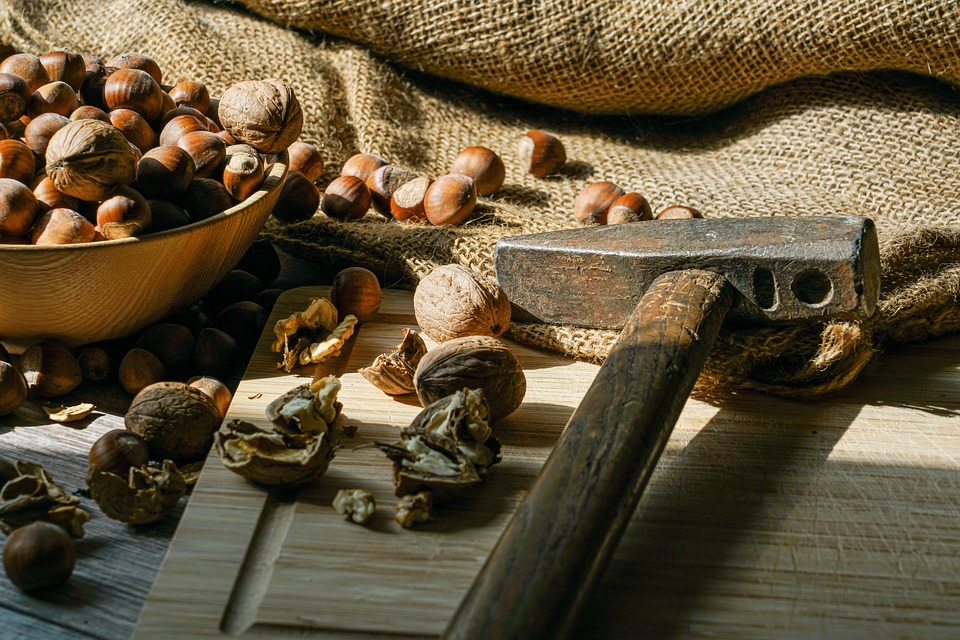Nutrients for Longevity: Essential Vitamins and Minerals for a Healthier Life
As the quest for longevity continues, scientists and nutritionists alike delve into the connection between diet and lifespan. While genetics play a significant role in how long we live, it’s increasingly clear that lifestyle choices—particularly nutrition—greatly influence our health and longevity. Essential vitamins and minerals are the building blocks of a healthy diet, contributing not just to vitality but also to the prevention of age-related diseases. This article explores the key nutrients that can help us live not just longer, but healthier lives.
The Importance of a Balanced Diet
A balanced diet rich in vitamins and minerals is crucial for maintaining overall health. Nutrients support various bodily functions such as metabolism, immune response, and cellular repair. They act as antioxidants, help in the formation of bones and tissues, and play a crucial role in keeping the body’s systems running smoothly. Here are some essential nutrients that have been linked to longevity:
1. Vitamin D
Vitamin D, often referred to as the "sunshine vitamin," is crucial for bone health and immune function. Research has shown that adequate vitamin D levels are associated with a lower risk of chronic diseases, including cardiovascular disease and certain cancers. It can also help manage insulin levels and support brain health. Since it’s challenging to get sufficient vitamin D from food alone, especially in regions with limited sunlight, supplementation may be necessary for many.
2. Vitamin C
Known for its role in immune support, vitamin C is a powerful antioxidant that helps combat oxidative stress, a significant contributor to aging and chronic disease. This vitamin also aids collagen production, which is vital for skin health and wound healing. Citrus fruits, strawberries, and leafy greens are excellent sources of vitamin C, making it essential for a youthful appearance and longevity.
3. Vitamin E
Vitamin E is another essential antioxidant that plays a critical role in protecting cells from damage caused by free radicals. It helps maintain healthy skin and eyes, and its anti-inflammatory properties contribute to overall heart health. Nuts, seeds, and green leafy vegetables are excellent sources of this vital nutrient.
4. B Vitamins
The B vitamin complex, including B6, B12, and folate, is essential for energy metabolism and red blood cell formation. These vitamins play a significant role in cognitive function and emotional health. Deficiency in B12, for instance, is linked to memory loss and cognitive decline in older adults. A diet rich in whole grains, legumes, and leafy vegetables ensures adequate intake of these crucial vitamins.
5. Calcium and Magnesium
Calcium is well known for its role in bone health and preventing osteoporosis, particularly in older women. However, magnesium is equally important, as it supports over 300 biochemical reactions in the body, including muscular function, nerve transmission, and energy production. Together, these minerals help maintain strong bones while contributing to overall wellness.
6. Omega-3 Fatty Acids
Although not vitamins or traditional minerals, omega-3 fatty acids are essential for long-term health and longevity. These healthy fats have anti-inflammatory properties that are linked to a reduced risk of heart disease, arthritis, and cognitive decline. Sources of omega-3s include fatty fish (such as salmon and mackerel), flaxseeds, and walnuts.
7. Zinc
Zinc is a vital mineral involved in numerous biological functions, including immune response, wound healing, and DNA synthesis. It plays a crucial role in cellular metabolism and has been associated with a lower risk of age-related disease, particularly in older adults. Good sources of zinc include meat, shellfish, legumes, seeds, and nuts.
The Role of Antioxidants
Antioxidants, like vitamins C and E, polyphenols, and flavonoids, are pivotal in fighting oxidative stress that accelerates aging. A diet rich in fruits, vegetables, nuts, and whole grains can provide a wealth of antioxidants, promoting cellular repair and longevity.
The Power of a Plant-Based Diet
Research consistently shows that a diet high in fruits, vegetables, whole grains, and healthy fats, often characterized by Mediterranean or plant-based diets, is associated with longer lifespans and reduced risk of chronic diseases. These diets not only provide essential vitamins and minerals but also promote healthy weight management and lower inflammation levels.
Conclusion
While genetics play an undeniable role in our longevity, the nutrients we consume can significantly affect our health and quality of life as we age. A diet rich in essential vitamins and minerals—along with a variety of other nutrients—can promote not just longer life but a healthier one. Embracing a balanced diet filled with nutrient-dense foods, coupled with a healthy lifestyle, can help us unlock the secrets of longevity. As always, it’s advisable to consult with a healthcare professional or registered dietitian when making significant changes to your diet or considering supplements to ensure they align with your individual health needs. Remember, investing in your nutrition today can lead to a healthier tomorrow.
For more detailed insights into the connection between nutrition and longevity, refer to this source.


























Add Comment